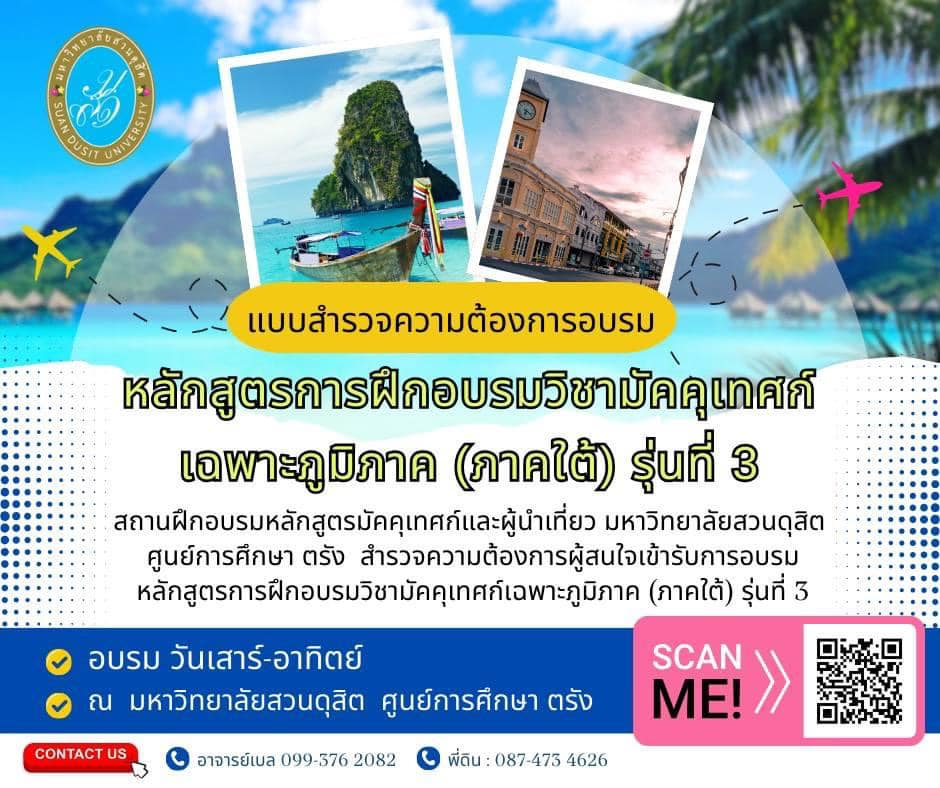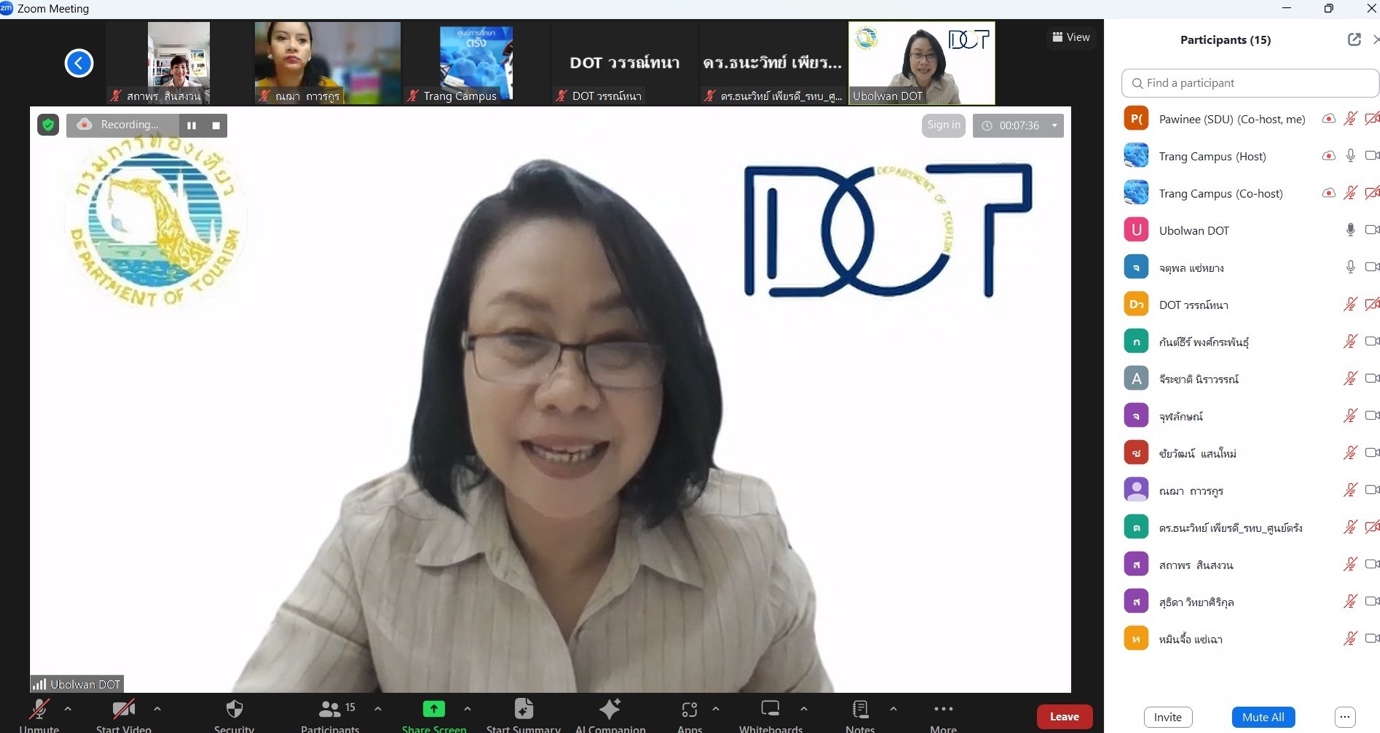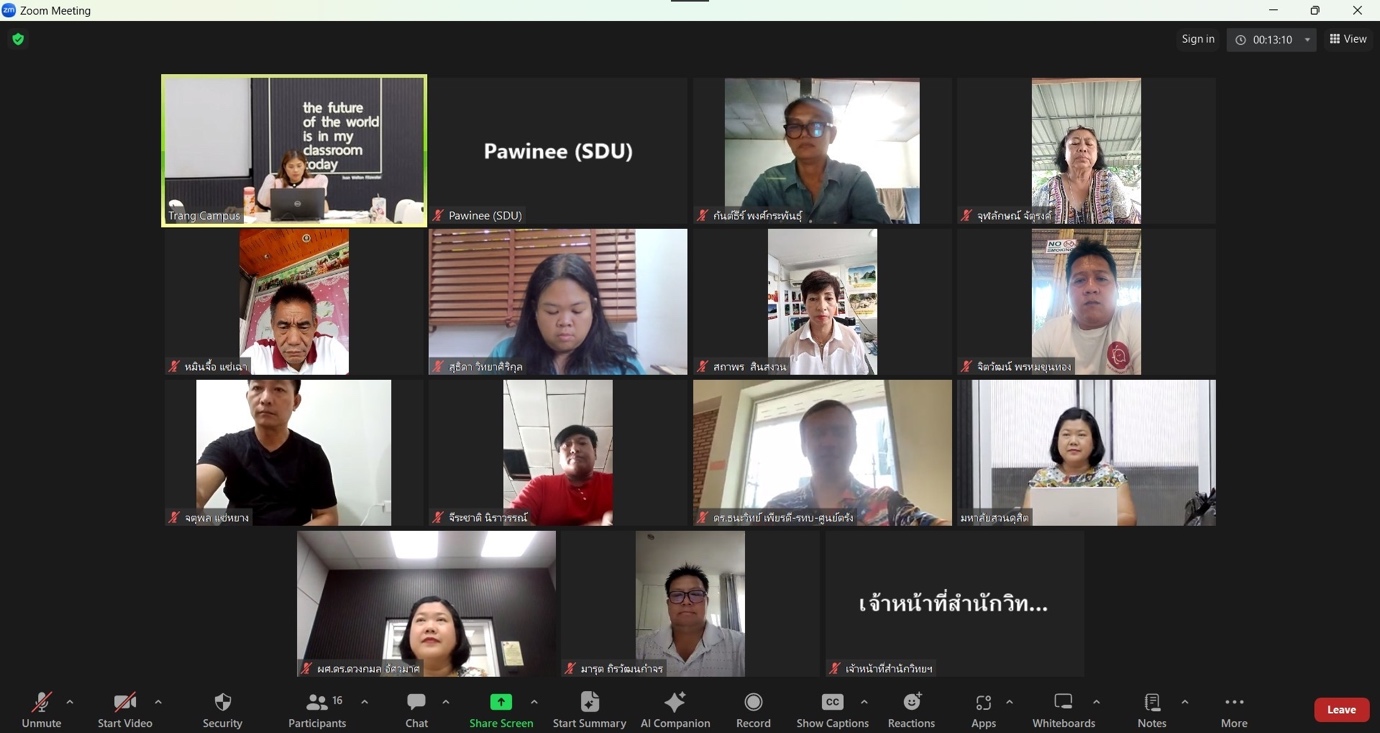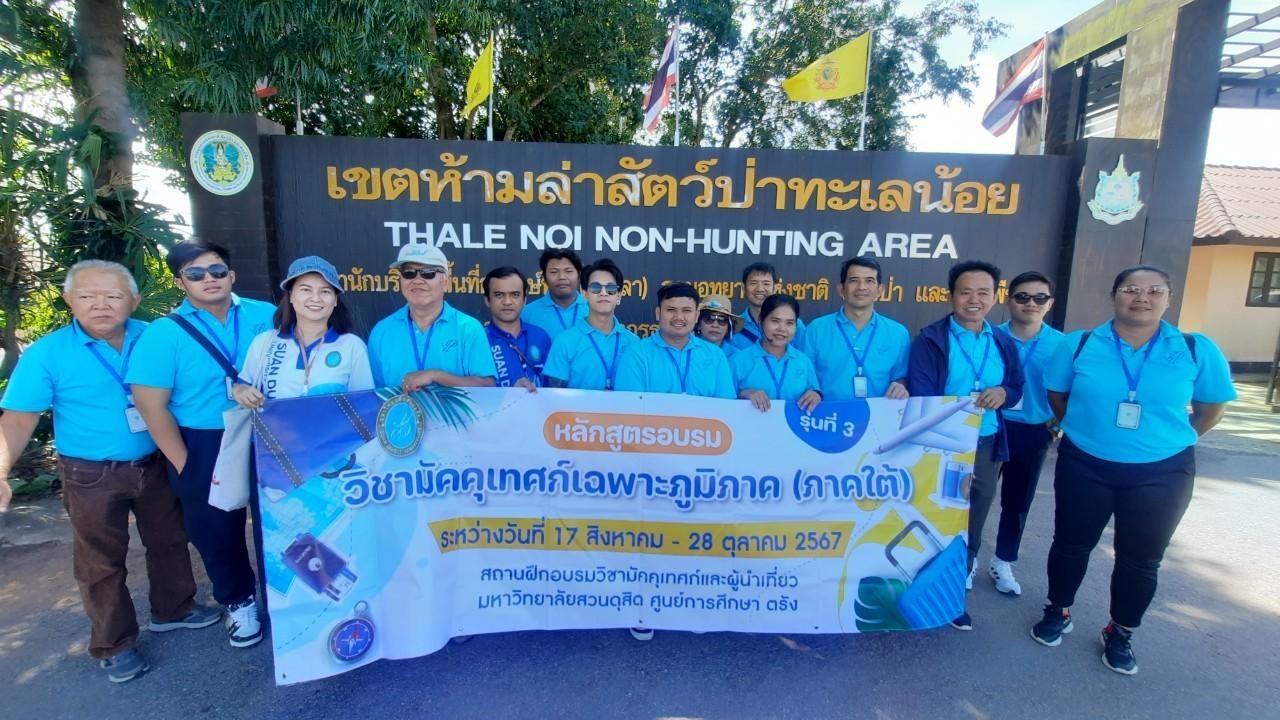Suan Dusit University (SDU) recognises the vital role of higher education institutions in cultivating environmental awareness and fostering responsible behaviour towards natural resources—particularly water and marine ecosystems, which are crucial to both the economy and the well-being of communities across Southern Thailand’s coastal regions.
To promote sustainable resource management and environmental responsibility, the university developed the Regional Tour Guide Training Programme (Southern Thailand, English Language Batch 3), conducted from 26–27 October 2024 in Phatthalung and Nakhon Si Thammarat provinces. The programme aimed to equip future tourism professionals with the knowledge, skills, and ethical mindset necessary to protect aquatic ecosystems and promote good aquatic stewardship practices within Thailand’s tourism industry.

Building Knowledge for Responsible Management of Water and Aquatic Ecosystems
This training programme focused on experiential learning in nature-based tourism and cultural tourism, enabling participants to explore and understand the relationship between tourism activities and aquatic ecosystems such as marine environments, coastal areas, wetlands, and freshwater sources. Lecturers and experts from Suan Dusit University provided academic insights on natural resource conservation, waste management, and sustainable destination management, while emphasising the role of tour guides as leaders in aquatic stewardship.


Participants engaged in both theoretical and field-based learning activities—observing aquatic ecosystems, assessing the environmental impact of tourism, practising responsible communication with tourists, and developing eco-friendly travel routes that minimise disruption to natural water bodies. This hands-on approach not only strengthened professional competencies but also fostered a deep understanding of the interconnection between humanity and nature, aligning with the principles of sustainable tourism development and ecosystem protection.
Promoting Responsible Water Use and Sustainable Tourism Awareness

The programme sought to cultivate environmentally conscious tour guides by integrating concepts of marine and freshwater stewardship and responsible water use throughout the curriculum.
Participants were encouraged to adopt and promote sustainable water management practices, such as reducing pollution from tourism activities, preventing littering in aquatic areas, and protecting marine biodiversity. The training also emphasised positive environmental communication, empowering guides to educate tourists about sustainable travel behaviours and the importance of preserving aquatic environments.
Additionally, the course incorporated the framework of Sustainable Tourism Management and Community-based Conservation, highlighting the need to balance economic development, social well-being, and environmental sustainability. Participants learned how to collaborate with local communities in conserving aquatic and marine resources—thus reinforcing the integration of community engagement within the broader scope of sustainable tourism practices.
Outcomes and Impacts
The implementation of this training programme has produced measurable and long-lasting impacts across environmental, social, and institutional dimensions. It has fostered a tangible culture of aquatic stewardship within Suan Dusit University, where education, community participation, and environmental action converge to create sustainable behavioural change.
From an environmental perspective, participants gained a comprehensive understanding of sustainable tourism practices and ecosystem protection, particularly concerning the conservation of marine and freshwater biodiversity. They learned to assess the environmental impacts of tourism, manage waste responsibly, prevent water pollution, and reduce human disturbances to aquatic life—all of which contribute to the long-term resilience of aquatic and marine ecosystems in Southern Thailand.
From a social and professional perspective, the programme empowered over 40 participants with the knowledge and motivation to pursue environmentally responsible careers in the tourism sector. Graduates of the programme now embrace the philosophy of “Tourism for Nature and Community”, serving as ambassadors who inspire tourists and local communities alike to engage in environmental conservation. This approach strengthened collaboration between the university, tourism businesses, and local communities, creating a lasting network of community-based aquatic stewardship.
At the institutional level, Suan Dusit University has reinforced its position as a leader in education for sustainability, using this programme as a model for integrating academic knowledge with real-world practice. The initiative has informed further curriculum development and institutional projects related to sustainable resource management and directly supports the advancement of SDG 14: Life Below Water.
Overall, the outcomes demonstrate how SDU successfully integrates education, research, and community engagementto transform learning into tangible environmental action. The university’s continuous effort to develop and support Good Aquatic Stewardship Practices stands as a model for responsible higher education institutions committed to sustainable development and the preservation of aquatic ecosystems for future generations.
The Regional Tour Guide Training Programme (Southern Thailand, English Language Batch 3) represents clear direct evidence of Suan Dusit University’s commitment to developing and supporting programmes that promote good aquatic stewardship practices.
This initiative not only enhances professional standards in Thailand’s tourism industry but also instils a shared sense of responsibility for protecting aquatic resources among students, educators, and communities.
Through this and related initiatives, Suan Dusit University continues to play a pioneering role in fostering aquatic stewardship culture, bridging education and sustainability to realise the global mission of SDG 14: Life Below Water—ensuring that life beneath the water continues to thrive in harmony with human progress.
